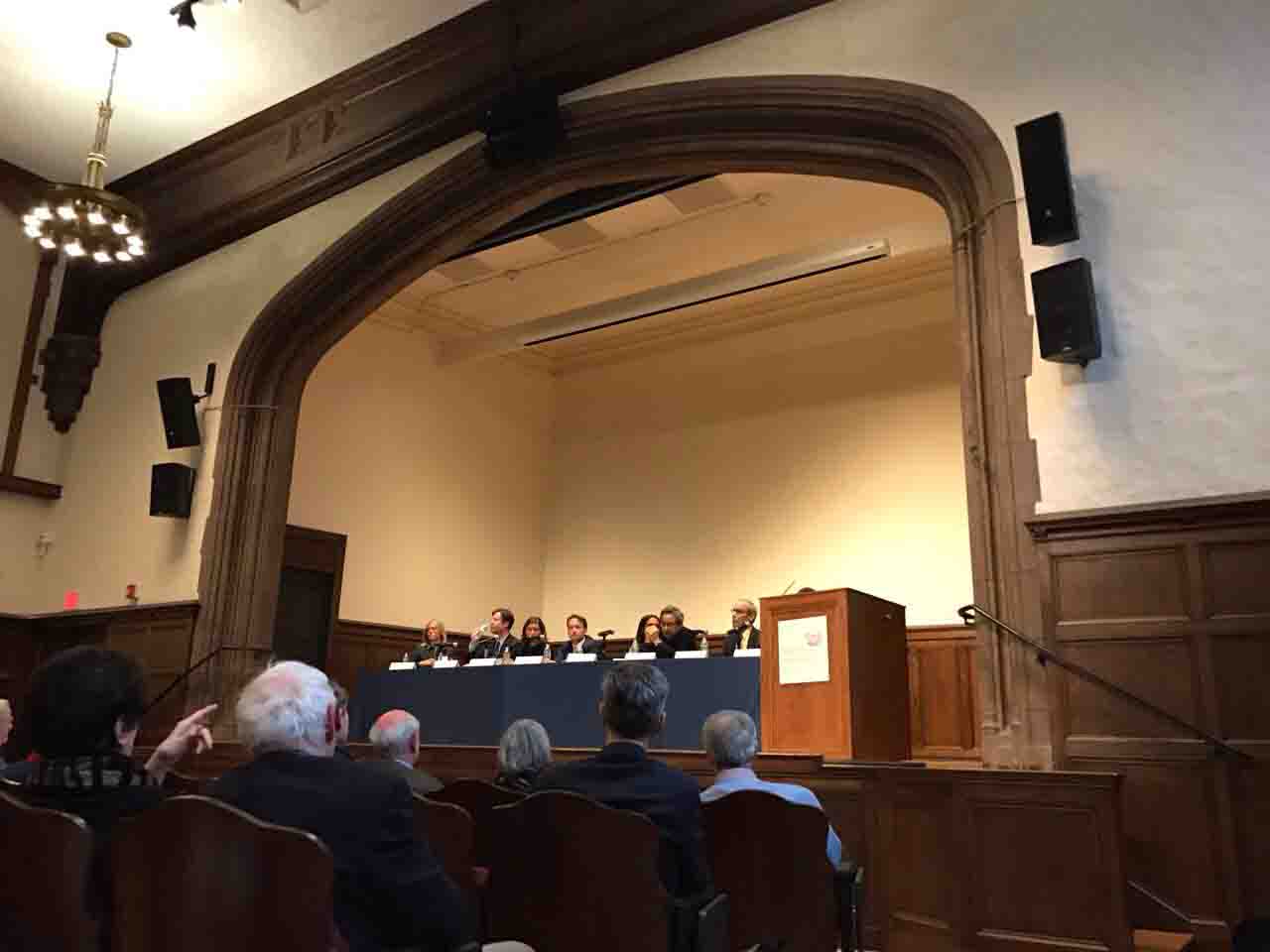
In the ongoing debate over the diversity of the Directed Studies curriculum, alumni of the freshman humanities program weighed in with their own thoughts at the 70th anniversary of D.S. earlier this month.
In recent years, many students have expressed concerns over the apparent one-sidedness of the D.S. curriculum, noting that almost all of the D.S. authors are white and male. In response to complaints about the program’s Eurocentrism, faculty have created a course in the Chinese canon similar in structure to D.S., and D.S. students have formed study groups to discuss works that did not make it into the program syllabus. In interviews with the News, the majority of D.S. alumni expressed support for both changing the D.S. curriculum and establishing a new program alongside the existing one.
Edward Marschner ’66 LAW ’70 said that adding new texts to the current D.S. curriculum is worth considering, as many alumni he knows “like the idea of a more global Yale,” not only in terms of student diversity but in terms of its classes as well. Marschner added that he spoke to University President Peter Salovey about the topic during the dinner for D.S. alumni that was held during the weekend events.
“I wanted to let him know that a lot of old alumni like me are very positive about [change], which surprises me, because alumni usually don’t like to change anything,” Marschner said.
Zoe Sharp ’00 also said that she viewed diversifying the curriculum favorably. She said that for her, D.S. was about learning to make connections, and therefore a body of texts including both the Eastern and Western canons would help students form even more connections.
Lisa Beth Savitz ’88, who attended the anniversary, said she saw D.S. as a tool for teaching students how to make cross-disciplinary connections. She said she was more in favor of running another program alongside the existing D.S. curriculum than revising the current program.
“One of the things that DS has been explicit about is studying a specific tradition and how it is interconnected,” she said. “Yes, in the modern world, everything is interconnected, but in those days they were just not talking to each other as much.”
She added that she does not see the Western canon as an inherently better one than any other, and that a D.S.-like program designed around the Asian intellectual tradition could have worked just as well — trying to bridge them, however, could be a challenge.
Motria Ukrainskyj ’82 said she was in favor of running another program alongside D.S. based partially on “nontraditional” texts, including those from the Eastern canon, though she was concerned about whether the D.S. curriculum would be cohesive if Asian texts were included. And Matthew Klein ’09 pointed out that proposals to diversify D.S. do not alleviate the need for faculty members to pick what is included and what is not.
Still, other alumni stressed the importance of maintaining the Western canon. Fareed Zakaria ’86, a speaker at the celebrations who delivered a talk titled “Why study the West?” told the News that he believed the bulk of the D.S. curriculum should be rooted in the Western culture, but that an addition of some Eastern texts could help.
“I think that people should understand that it’s not the matter of political correctness, it’s the matter of historical correctness to say: ‘The West created the modern world, that’s why we study the West,’” he said. “But it would be enormously beneficial, maybe towards the end of the curriculum, to put in some texts that help [students] understand how the modern world is going to be shaped increasingly by interaction between the West and the rest of the world.”
Thomas Small ’82 said that he believed that Eastern texts — whether incorporated into D.S. or preferably into a parallel program — are worth studying. Small added that he agreed with Zakaria’s talk and that he believed that while other traditions “should not be ignored” there were valid reasons for privileging the Western tradition.
Directed Studies was established in 1946.







